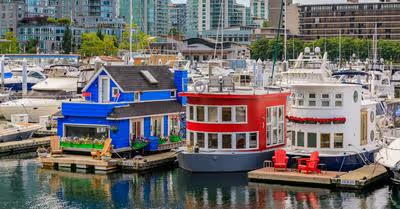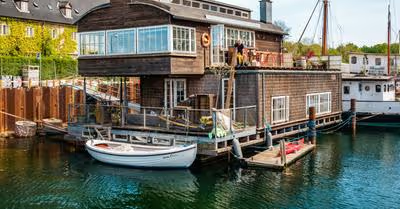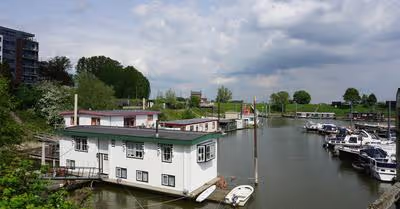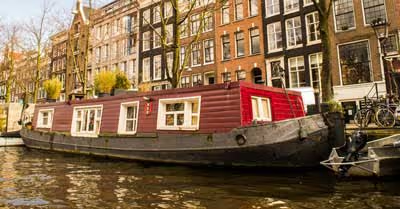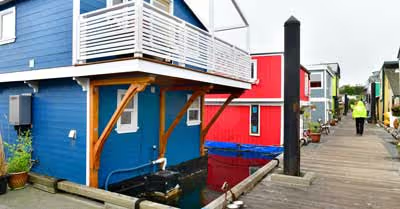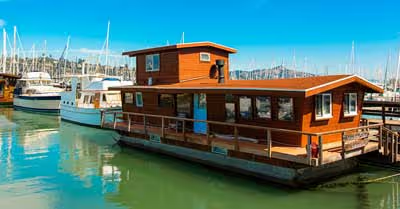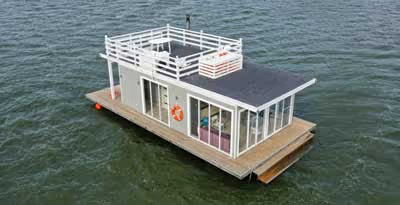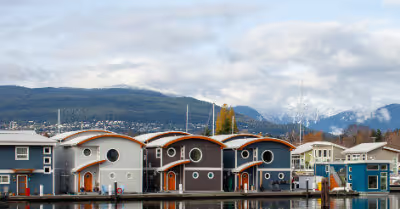
Houseboats, like all watercraft, tend to decay with age. But proper maintenance can make a houseboat last for decades, depending on a few key factors.
The average lifespan of a houseboat is around 30 years, but most vessels can last for much longer. A well-cared-for houseboat can last 50 years or longer, especially when constructed with fiberglass. The primary reason houseboats don't exceed their typical service life is because of neglect.
In this article, we'll cover the average practical lifespans of fiberglass, steel, and wooden houseboats. We'll also go over what happens to houseboats as they age, along with how to prevent the most common age-related problems. Additionally, you'll learn five tips on how to make your houseboat last as long as possible.
The information contained in this article was sourced from boat experts and authorities on houseboat maintenance and repair. We also consulted the houseboat community for information and tips on increasing houseboat longevity.
How Long do Fiberglass Houseboats Last?
Fiberglass is a remarkable boat building material due to its corrosion resistance, low cost, and high strength. Fiberglass houseboats have been popular for decades, as they require less maintenance than their metal in wooden counterparts. The practical age limit of a fiberglass houseboat is about fifty years, but many fiberglass vessels are decades older and still in excellent condition.
Fiberglass is essentially reinforced plastic. As a result, it never decays and could technically last for centuries. In other words, a well-maintained fiberglass houseboat can last as long as you're willing to keep it in good shape.
How Long do Steel Houseboats Last?
Some houseboats are built on steel barges or hulls. Steel is by far the strongest material used in the construction of houseboats, but it's also one of the most vulnerable to corrosion. Steel houseboats last as long as the owner is willing to keep the hull painted and free from serious corrosion.
Steel thins out as it corrodes and eventually leaks. But if the hull is kept painted and sacrificial anodes are used, a steel houseboat can last for generations and survive some serious physical strain. With average maintenance, a steel-hulled houseboat should last 30 years or more.
How Long do Wood Houseboats Last?
Wood is the oldest houseboat building material around, and it is also one of the longest-lasting. The longevity of a wooden houseboat is more dependent on maintenance than any other building material. With proper care and regular maintenance, wooden vessels can (and often do) last for centuries. Without proper maintenance, a wooden houseboat can be out of service in less than a decade.
Another factor to consider is the type of wood used to build a houseboat. Houseboats with a hull made of pine are not likely to last particularly long, as pine has poor water resistance qualities. Other materials, such as white oak and western red cedar, are excellent hull materials and can last many decades with surprisingly little intensive maintenance.
What Happens as Houseboats Age?
Aging causes numerous problems on houseboats, particularly from exposure to weather and lack of maintenance. Here are the most common problems caused primarily by age on houseboats and why they're hazardous.
Corrosion
Corrosion affects virtually every kind of metal at sea. Saltwater is particularly bad for ferrous metals such as steel and iron. Over time, the metal fittings and fasteners aboard the houseboat can corrode, especially if poor quality material was used during construction.
Galvanic corrosion is a type of metal degradation that occurs when two dissimilar metals are in contact with each other and saltwater. Aluminum is one of the worst offenders and should always be inspected on old houseboats. Even well-built houseboats are likely to suffer from some level of galvanic corrosion as they age.
Electrical Problems
Old wiring, especially wiring that's been exposed to the elements, is a common source of problems on aging houseboats. Copper and aluminum wires can corrode and break, and sometimes short circuits. Wiring can be a major headache aboard boats.
Mold and Mildew
Mold and mildew can occur in any dark and damp place, especially in an enclosed environment like a houseboat cabin. All old houseboats are likely to have some mold and mildew somewhere, but this problem can be abated if it's not too severe.
Leaks
Contrary to popular belief, sinking is not the most common issue caused by leaks on houseboats. Much more often, the roof or windows leak when it rains, which leads to mold and interior decay. Water can also seep between the decks and weekend the structure. As seals around windows and hatches get old, they often leak and cause water ingress.
General Degradation
Fading, paint peeling, delamination, and cracked plastic are all symptoms caused primarily by age. Even long-lasting houseboats suffer from some of these issues eventually, though maintenance and repair can keep the vessel in acceptable condition.
Do Houseboats Have an Age Limit?
Technically speaking, most well-built houseboats can be kept on the water and functional almost indefinitely, provided they receive proper maintenance. The biggest challenge to keeping a houseboat in good condition is outpacing natural decay aboard the boat and preventing the sun from doing too much damage.
In reality, most people don't provide perfect maintenance for their houseboats, so most vessels have a practical age limit of about 30 to 50 years. After this point, the vessel has likely changed hands multiple times and been neglected at least once, which increases the likelihood that it has reached the end of its service life.
How to Make a Houseboat Last
Maintenance is key to houseboat longevity. This rule applies to virtually all boats, especially vessels with engines and electrical wiring. There's only a handful of things houseboat owners need to do to ensure long service life.
These tasks have to be done regularly and properly, but they can make a world of difference. Here are five maintenance tips to increase the lifespan of your houseboat.
1. Leak Prevention
Houseboats are designed to handle water on the outside, not on the inside. Water ingress is one of the quickest ways that otherwise solid houseboats become uninhabitable. Regularly inspect the windows, hatches, vents, and fixtures for signs of leaks. Repair leaks immediately, and reseal windows and vents regularly.
2. Paint and Polish
Painting, staining, varnishing, and gelling have practical uses beyond improving the aesthetic appearance of your boat. These processes prevent weather-related decay and repair damaged surfaces. If you want your decks, fittings, and hull to stay in good shape, it's essential to refinish them whenever necessary.
3. Wiring Upgrades
Inspect your electrical systems regularly, as a small leak can quickly corrode wiring and contacts. It's easy to replace electrical components and repair them before they corrode completely, so it's best to do it ahead of time to prevent headaches down the line. Call an electrician if you're not experienced, as electrical work can be hazardous.
4. Haul-Out
Hauling out your boat every few years is a good idea, especially if you have a cruising houseboat. Marine growth can quickly infest the bottom of your hull and clog fittings. Additionally, marine growth can reduce your efficiency.
In addition to causing drag, marine growth is unsightly and can sometimes conceal major structural issues below the waterline.. The haul-out is a great time to get the bottom of your boat painted and to have any cracks or leaks repaired before they become a major issue.
5. Engine Care
Engine care is an essential and often-overlooked part of houseboat maintenance. If you don't have an engine, this does not apply to you, but most modern houseboats have the ability to cruise.
When not in use, 'winterize' your motor and prevent saltwater from corroding and clogging the cooling ports. Replace the oil regularly, and keep the space clean so you can detect leaks fast.
Regularly replace wear components such as belts and hoses, and make sure water stays away from vital electrical components. Run your engine periodically to keep harmful buildup from becoming permanent.



